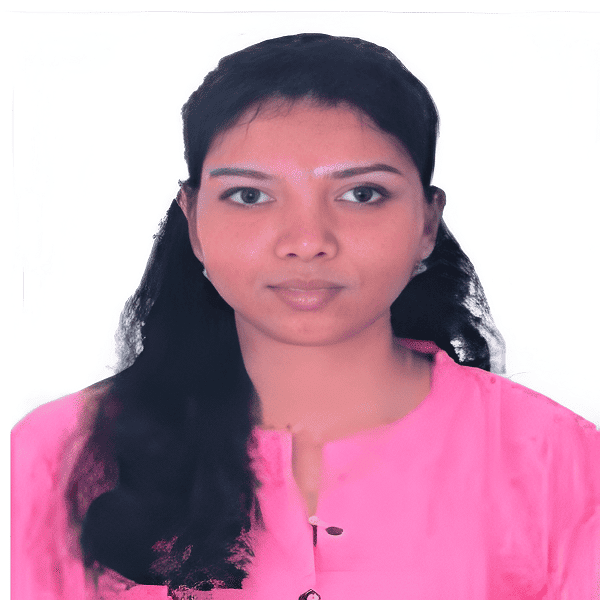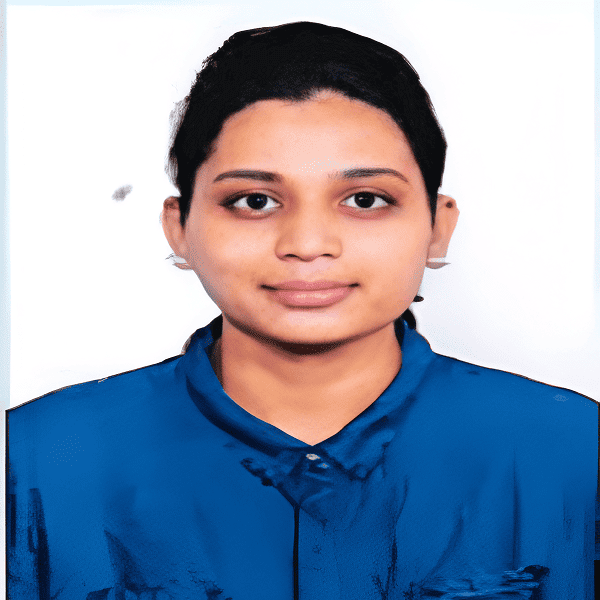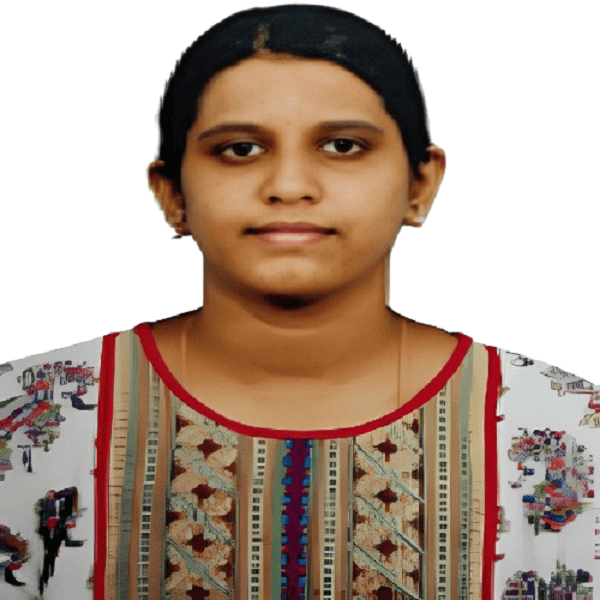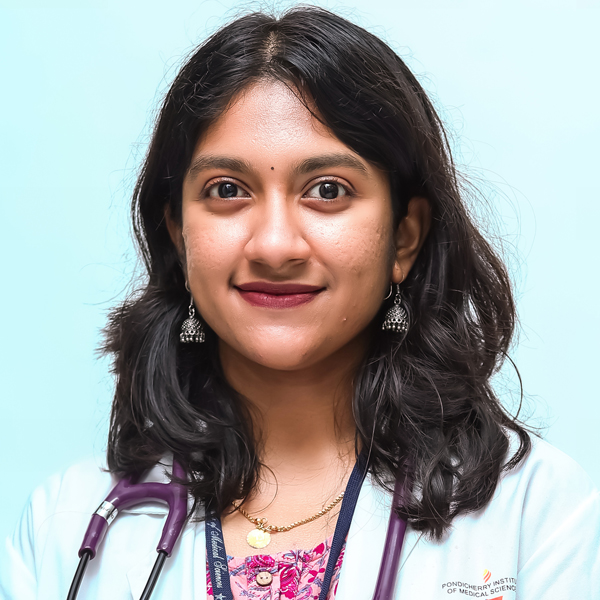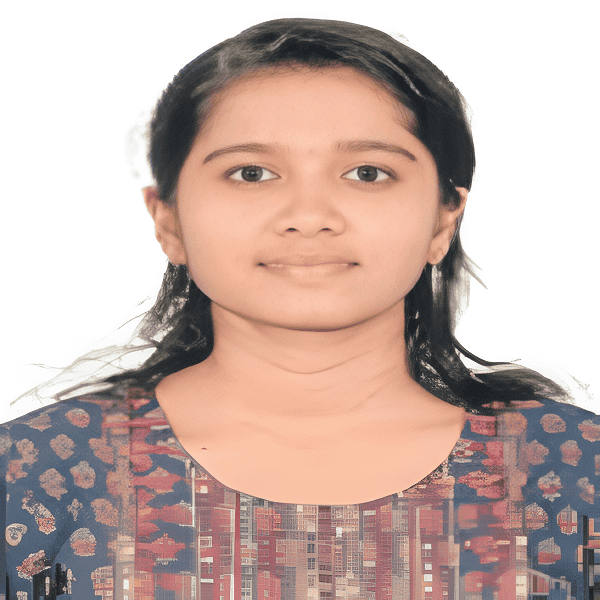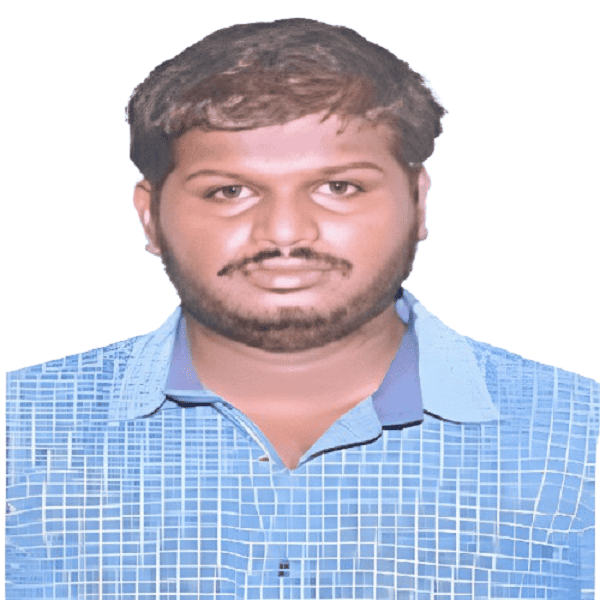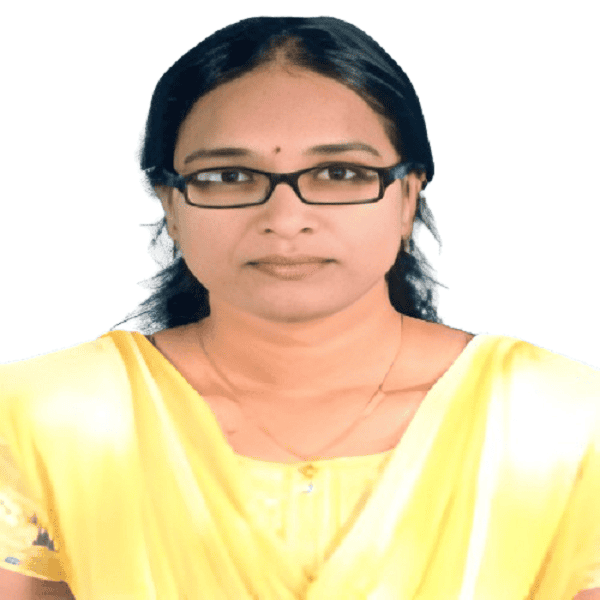
The Department commenced under the expert guidance of Padma Shri Professor V Nalini and was subsequently headed by Dr Philomena D’Souza, Dr MNG Nair and Dr. Lalitha Krishnan. Each of them brought their experience from JIPMER, Goa, AFMC and CMC Vellore, respectively to this department.
Vision
To serve the children of the community through affordable, quality health care and provide excellent education to medical students where we follow the defining principles of ethics, excellence, care and research, in line with our institutional motto “To Reach the Unreached”.
Mission
Patient Care
- Provide affordable and quality care
- Be a centre of excellence for pediatric & neonatal critical care services
- Provide comprehensive child guidance & rehabilitation services
- Promote and strive to improve pediatric outreach services
Education
- Achieve and standardize competency based classroom and clinical teaching for undergraduates
- Promote blended learning for undergraduates
- Achieve excellence in Postgraduate training
Research
- Promote relevant clinical research resulting in ethical publications which will contribute to improved pediatric care
Out Patient
- Outpatient clinic - All working days (8am - 4pm) Saturdays ( 8 am -1 pm) (Including well baby clinic & Immunization clinic)
- Pediatric Emergency - All days, 24x7
- Neonatal Intensive Care - All days, 24x7
- Pediatric Intensive Care - All days, 24x7
- Paediatric Specialty clinics
a. High risk neonate - Tuesday & Friday (10 - 12 pm)
b. Gastroenterology - Monday ( 2 - 4 pm)
c. Neurology - Monday (10am - 12 pm)
d. Nephrology - Tuesday (2 - 4pm)
e. Cardiology - Wednesday (10am - 12pm)
f. Hematology - Wednesday (2 - 4 pm)
g. Endocrinology - Thursday (10am - 12pm)
h. Asthma/ Pulmonology - Friday (2 - 4pm)
i. PICU follow up clinic - Friday (2 - 4pm)
Child Guidance and Rehabilitation Centre(CGRC)
This is a multi-disciplinary clinic with paediatrician, child psychologist, speech therapist, physiotherapist, occupational therapist and sees children with the following problems : Attention deficit Hyperactivity Disorder (ADHD), Autism spectrum disorders, Adolescent issues,, Cerebral palsy, Developmental delays(Global/Specific), Diseases with prominent psychosomatic difficulties, Emotional and Behavioral disorders., Handicaps or Behavioral disorders, Intellectual Disability (Mental Retardation), Learning disabilities/ Difficulties, Speech and Language disorders (Delays/ Stammering etc), post-operative cleft lip and palate. The unique feature of this Centre at PIMS is “everything under one roof”. After pediatrician’s evaluation the child will be assessed by the psychologist, occupational therapist, physiotherapist, Special educator and speech therapist and a plan made depending on the disability. Simultaneously investigations like MRI, EEG, metabolic and genetic workup to establish diagnosis will also be commenced by the Paediatrician in charge of CGRC, preferably as an inpatient. The diagnosis and plan of management will be explained to parents in a multidisciplinary meeting. Children with special needs may be difficult, different, and feel like a burden. Parents often feel stigmatized, frustrated, tired of running from pillar to post taking their children for treatment. We are having group therapies, parent support groups, school readiness program so that children with developmental disorders can be improved to live a near normal life. These services can make them independent, helping them to be productive and contributing citizens in the society. Special occasions like Father’s day, Mothers day, Christmas, New year, Diwali, Children’s day are celebrated in CGRC where children make greeting cards and share with others, come in fancy dresses and enact the real life characters. This improves their social and family bonding.


Age: Birth to 14 years
Types of cases: All problems pertaining to newborn, children and adolescents
Cross consultation, when required, is given to various departments like Dental, ENT, Ophthalmology, Dermatology, Cardiology, Neurology.
Appointments can be provided via face to face, telephone or video. Call 0413-2651420
Unit Wise Services
|
UNIT |
Days of the week |
Timing |
Professor |
|
UNIT I |
Monday, Thursday |
8:00 a.m – 4:30 p.m |
Dr. Peter Prasanth |
|
UNIT II |
Tuesday, Friday |
8:00 a.m – 4:30 p.m |
Dr. Priya Jose |
|
UNIT III |
Wednesday, Saturday |
8:00 a.m – 4:30 p.m, sat till 1:00 p.m |
Dr. Nishanth Rajan |
Immunization Services
Two State-of-art Operation Theaters with Laminar air-flow and filters where filtered air enters the theatre from roof and is sucked out in the sides. This reduces the incidence of infection and meets the international standards for quality.
- LOCATION: Paediatric outpatient department
- WORKING HOURS: 8a.m to 4.30p.m (Monday to Friday) Saturday ( 8am to 1 pm)
- VACCINES AVAILABLE: All vaccines as per National Immunisation Schedule and Indian Academy of Paediatrics.
- VACCINE STORAGE: As per WHO recommendation (Ice Lined Refrigerator with temperature monitoring)
- COORDINATION WITH GOVERNMENT AND WHO: All guidelines issued by the WHO surveillance officer from time to time are followed. Vaccination details are shared with government agencies. AEFI surveillance is done routinely.
Pediatric Emergency Is Open 24 Hours A Day, 7 Days A Week. No Appointment Is Necessary.
For All Emergencies Please Call 9994790065
Speciality Clinics
The Department runs the following speciality clinics where children with special problems are seen
- Asthma clinic: All types of asthma, All wheeze, Cystic fibrosis, Bronchopulmonary dysplasia
- Cardiology clinic: Acyanotic heart disease, Cyanotic heart disease, Rheumatic fever follow-up, Infective endocarditis, Valvular heart disease, Kawasaki disease, Cardiomyopathies, Myocarditis, Pericardial effusion, Arrhythmias
- Child Guidance and Rehabilitation Clinic( CGRC): This is a multi-disciplinary clinic with paediatrician, child psychologist, speech therapist, physiotherapist, occupational therapist and sees children with the following problems : Attention deficit Hyperactivity Disorder (ADHD), Autism spectrum disorders, Adolescent issues,, Cerebral palsy, Developmental delays(Global/Specific), Diseases with prominent psychosomatic difficulties, Emotional and Behavioral disorders., Handicaps or Behavioral disorders, Intellectual Disability (Mental Retardation), Learning disabilities/ Difficulties, Speech and Language disorders (Delays/ Stammering etc), post-operative cleft lip and palate
- Endocrinology clinic: Short stature, Growth hormone deficiency and MPHD, Puberty disorders including precocious puberty, delayed puberty, Thyroid disorders like hypothyroidism, hyperthyroidism and goiter., Type I diabetes – insulin therapy, Sugar monitoring and compliance, Atypical genitalia, Bone disorders
- Gastroenterology clinic: Persistent diarrhea, Acute hepatitis, Chronic hepatitis, Direct jaundice , Ascites, Hemetemesis
- Hematology clinic: Thalassemia, Sickle cell anemia, Other chronic anemias, Bleeding disorders like hemophilia, von Willebrand, Primary immune deficiency diseases, Hematological malignancies, Acute Leukemias, Lymphomas
- Nephrology clinic: Bed-wetting , Renal stones , Nephritis, Nephrotic syndrome, Urinary tract infections, Nephrocalcinosis, Renal tubular acidosis , Urinary tract anomalies
- Neurology clinic: All cases of seizures, CNS infections, persistent headaches
In-Patient


There are 75 beds in the general category under the pediatric department. Semi-private and Private wards are also available. The children admitted are looked after round the clock by pediatric consultant and residents. Expert nursing care is provided by trained pediatric nurses, supported by M.Sc and PhD pediatric nursing faculty from College of Nursing. The pediatric ward is large child-friendly and well ventilated. Food is supplied by qualified dieticians in a clean and hygienic manner. Only one female attendant per child is allowed, except during visiting hours (12:00 Noon - 01:00 PM, 05:00 - 07:00PM).
Pediatric Intensive Care Unit ( PICU)

This is a well equipped 7 bedded unit with facilities to manage all types of pediatric emergencies. The unit has state of the art ventilators, monitors and syringe pumps. It is headed by a full-time Pediatric intensivist (DM Pediatric Critical Care). It is covered by a pediatricians and trained intensive care nurses round the clock. All the doctors working are American heart association Pediatric advanced life support (AHA PALS) certified.
Neonatal Intensive Care Unit (NICU)

The Neonatal Intensive Care Unit (NICU) is a state-of-the-art facility dedicated to providing specialized care for newborns who require intensive medical attention. Established by Dr. Lalitha Krishnan and with a team of highly skilled healthcare professionals, cutting-edge technology, and a nurturing environment, the NICU ensures the well-being and optimal development of premature and critically ill infants. NICU emphasizes family-centered care. Parents are encouraged to actively participate in their baby's care and decision-making, fostering a supportive and nurturing environment. The healthcare professionals’ team understands the emotional stress that families may experience and provides comprehensive support and counseling services to assist them throughout their journey. Every aspect of neonatal care is meticulously managed to provide the best possible outcomes for newborns. All the doctors working here are Indian academy of Pediatrics NALS certified.
MBBS Course (Undergraduate Training)
The Department of Pediatrics prides itself on the excellent complement of teaching faculty available for undergraduate and postgraduates.
MBBS students are trained through theory, clinical and e-learning methods spread over 3 years during their course. They have formative assessments by means of OSCE, clinical and theory examinations. Competency based medical education (CBME) is mandatorily followed throughout the entire curriculum. CBME based Log books are compulsory and corrected by concerned faculty all through the posting. Regular counseling and feedback sessions are carried out to maximize the learning process. Faculty at all levels is readily available for clarifications and re-inforcement of knowledge. At least 25percent of the curriculum is covered by having integrated lectures with inputs from other departments (Both Vertical and horizontal).
Early clinical exposure: This is given for 2 weeks during the VI semester of the MBBS course. Students spend time in the department learning emergency management, skills required in making a clinical diagnosis, how to take a detailed history and communication with patients. Clerkship at the department of Pediatrics is an integrated learning experience that enables the students to further their professional knowledge, skills and attitudes, as they learn to care for patients effectively and humanely. This is achieved through evening two hour teaching and learning in clinical settings as part of a health care team. The Faculty's goals are to facilitate learning, to promote independent thinking, to encourage compassionate care and to equip students for a lifelong learning.
MD Pediatrics Course (Postgraduate Training)
This is a three year course where the resident is given graded responsibility from the first to the third year in managing children in out-patient and in-patient wards. They are supervised at all times by faculty and knowledge, attitudes and skills are imparted by a continuous hands on process.
Presentations
The resident is expected to make oral and power point presentations in the various topics assigned. These will be evaluated instantly and feedback given
Audit
The duty postgraduates are expected to present the cases admitted and discuss emergency and evidence based management protocols. Care plans are discussed. Emphasis is always on quality of patient care, academic approach to the problem, ethical considerations and establishment of communication skills.
Interdepartmental Meetings
These are held regularly with Obstetrics, Radiology, Pediatric surgery. And others as and when the need arises. The concerned postgraduate is expected to present the problem, draw up a plan and be up to date with recent advances.
Case presentations, seminars, journal clubs, weekly formative assessment,
yearly progress are all done regularly throughout the course
Others: The Department actively participated in all State and National programmes, especially those conducted by the Indian Academy of Pediatrics.
- Oral rehydration solution (ORS) week
- Breast feeding week
- IAP postgraduate quiz
- IAP undergraduate quiz
- Intra and Intercollegiate quiz competitions
- Poster and oral presentations in conferences
- Undergraduate teaching by the postgraduates under supervision
- NRP & PALS Workshop
- Autism awareness week
- Adolescent week
Panda (Pediatric And Neonatal Didactic Activity)
This is the Annual CME of the Department of Pediatrics which was commenced in the Year 2012. This is planned around the Children’s day and National Newborn week, usually the second week of November. This is conducted as a panel discussion, didactic lectures or workshops. Topics are of current interest to all faculty, postgraduates and undergraduates, including extramural ones.
Meet our Doctors
Paediatrics












